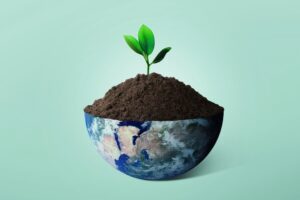For decades, recycling was presented as a solution. Put your plastic in the blue bin, and it would be sorted, recycled, and turned into something new. That’s the story we were sold.
The truth is harsher. Much of that plastic was not recycled at all. It was packed into shipping containers and sent thousands of miles away — from wealthy countries to poorer nations — under the label of “recycling.”
This wasn’t an accident or a side effect. It was a deliberate practice: wealthy nations exporting not just their plastic, but their responsibility.
The Global Plastic Waste Trade
From the 1980s until 2018, countries like the United States, United Kingdom, Canada, Japan, Australia, and members of the European Union exported millions of tons of plastic waste overseas.
The largest destination was China, which for years accepted nearly 45% of the world’s imported plastic waste. Shipping containers left Western ports labeled as “recycling.” What arrived was often contaminated, mixed, and largely unrecyclable.
When China banned these imports in 2018 through its National Sword policy, the illusion collapsed. Wealthy nations suddenly had nowhere to send their waste — and it became clear just how much of their “recycling” had relied on exports.
Where the Waste Went Next
After China’s ban, the waste trade shifted to Southeast Asia:
- Malaysia quickly became the largest new importer, receiving hundreds of thousands of tons annually.
- Indonesia, Vietnam, Thailand, and the Philippines also saw surges in imported plastic waste.
The result?
- Piles of unrecyclable plastic stacked in fields and villages.
- Open burning releasing toxic fumes into the air.
- Plastics dumped into rivers and oceans.
- Local communities facing pollution and health risks with no infrastructure to manage it.
In 2019, the Philippines famously returned containers of Canadian waste back to Canada, calling it what it was: garbage, not recycling.
The Recycling Illusion
Wealthy nations didn’t just export plastic — they exported the illusion that recycling worked.
- Citizens believed they were helping.
- Governments counted exported waste as “recycled” in their official statistics.
- Corporations continued producing more plastic, pointing to recycling as proof their products weren’t harmful.
In reality, recycling bins in wealthy countries became pipelines sending trash to communities without the means to handle it.
Why This Matters
This isn’t just about waste management. It’s about environmental justice.
- Wealthy nations avoided responsibility, while poorer nations carried the pollution, health impacts, and costs.
- The global South became the dumping ground for the global North’s consumption.
- Communities suffered — from respiratory illness due to burning plastics to poisoned farmland from microplastic runoff.
This was not recycling. It was waste colonialism.
The Way Forward
We can’t undo decades of exported damage, but we can stop the lie.
- Ban waste exports: Some nations have begun restricting the practice. Stronger international agreements are needed.
- Invest in real solutions: Refill, reuse, and redesign systems that eliminate single-use plastics.
- Hold corporations accountable: Extended Producer Responsibility laws to stop the cycle of disposability.
- Stop counting exports as recycling: Recycling statistics must reflect reality, not exports.
FAQs
Did wealthy nations really send their trash overseas?
Yes. Containers of plastic waste — much of it contaminated and unrecyclable — were shipped directly from wealthy countries to poorer nations.
Was any of it recycled?
A small percentage, yes. But the majority was either burned, dumped, or mismanaged due to lack of infrastructure.
Why did poorer nations accept it?
Often under the guise of “recycling trade,” with promises of economic benefit. In reality, it overwhelmed communities and left behind pollution.
What changed after 2018?
China’s ban forced the truth into the open. Wealthy nations could no longer hide their plastic dependency by exporting it.
Final Thoughts
Recycling was supposed to be the answer. Instead, it became the excuse. For decades, wealthy nations literally shipped their trash to poorer nations, exporting both the illusion of responsibility and the reality of destruction.
It’s not just a broken system. It’s a betrayal.
If recycling is to mean anything in the future, it has to start with honesty — no more exports, no more greenwash, no more pretending our garbage disappears when it leaves our shores.
Because the world deserves better than the biggest recycling lie ever told.









Reader Interactions